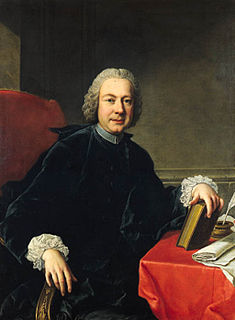A Quote by John of the Cross
Obedience is a penance of reason, and, on that account, a sacrifice more acceptable than all corporal penances and mortifications.
Related Quotes
No one should judge that he has greater perfection because he performs great penances and gives himself in excess to the staying of the body than he who does less, inasmuch as neither virtue nor merit consists therein; for otherwise he would be an evil case, who for some legitimate reason was unable to do actual penance. Merit consists in the virtue of love alone, flavored with the light of true discretion without which the soul is worth nothing.
We have made covenants so to do solemn, sacred, holy covenants, pledging ourselves before gods and angels. We are under covenant to live the law of obedience. We are under covenant to live the law of sacrifice. We are under covenant to live the law of consecration. It is our privilege to consecrate our time, talents, and means to build up his kingdom. We are called upon to sacrifice, in one degree or another, for the furtherance of his work. Obedience is essential to salvation; so, also, is service; and so, also, are consecration and sacrifice.
If you have more than one reason to do something (choose a doctor or veterinarian, hire a gardener or an employee, marry a person, go on a trip), just don’t do it. It does not mean that one reason is better than two, just that by invoking more than one reason you are trying to convince yourself to do something. Obvious decisions (robust to error) require no more than a single reason.
He in whose heart the law was, and who alone of all mankind was content to do it, His sacrifice alone can be the sacrifice all-sufficient in the Father's sight as the proper sacrifice of humanity; He who through the Eternal Spirit offered Himself without spot to God, He alone can give the Spirit which enables us to present our bodies a living sacrifice, holy and acceptable to God. He is the only High-Priest of the universe.
I think that what I was talking about was that as a woman growing up in a Mormon tradition in Salt Lake City, Utah, we were taught - and we are still led to believe - that the most important value is obedience. But that obedience in the name of religion or patriotism ultimately takes our souls. So I think it's this larger issue of what is acceptable and what is not; where do we maintain obedience and law and where do we engage in civil disobedience - where we can cross the line physically and metaphorically and say, "No, this is no longer appropriate behavior."










































